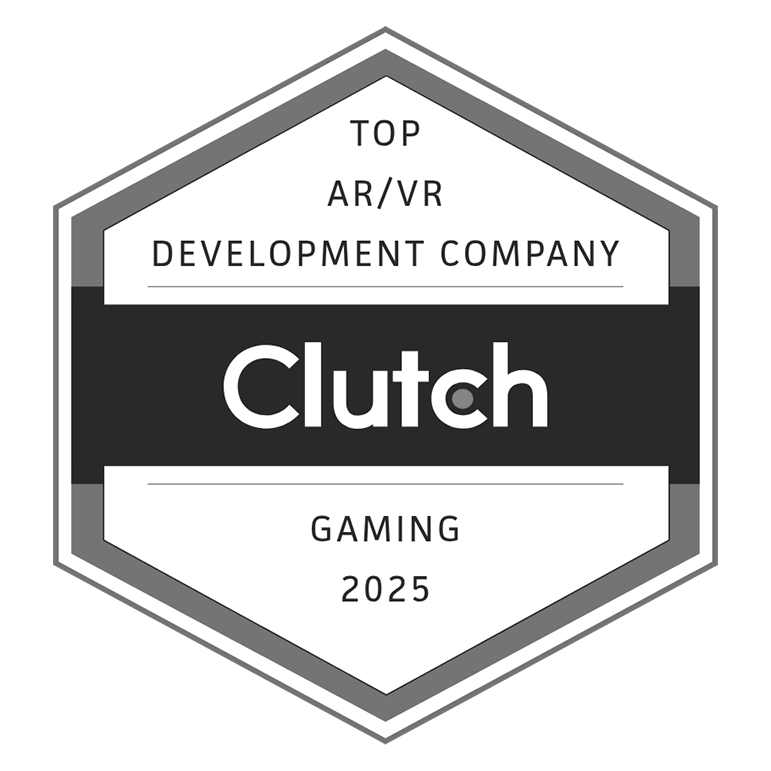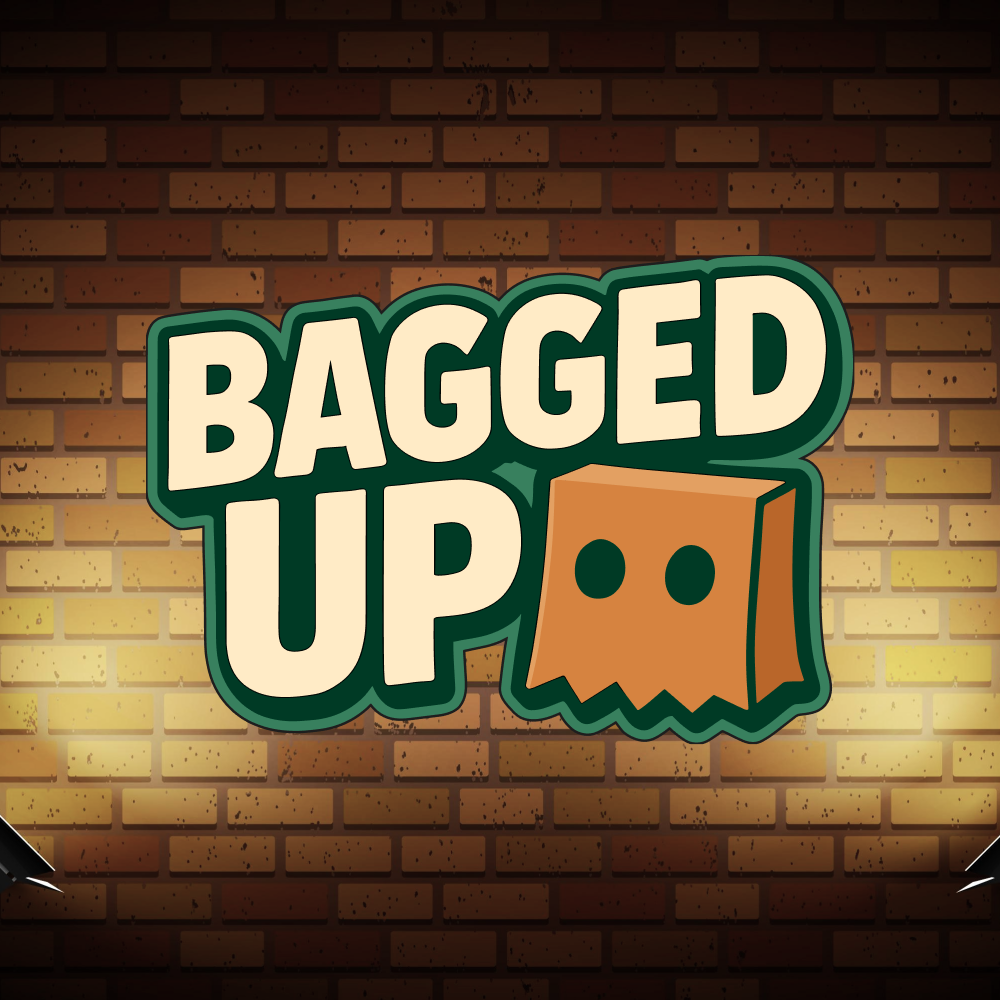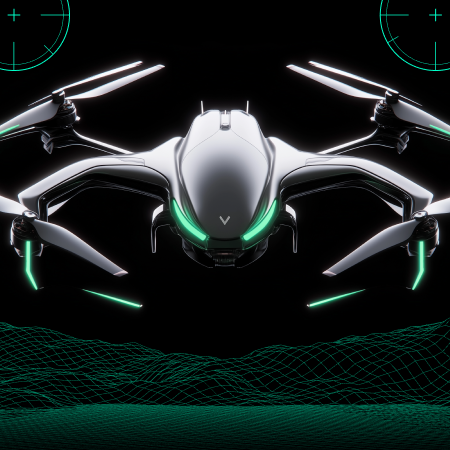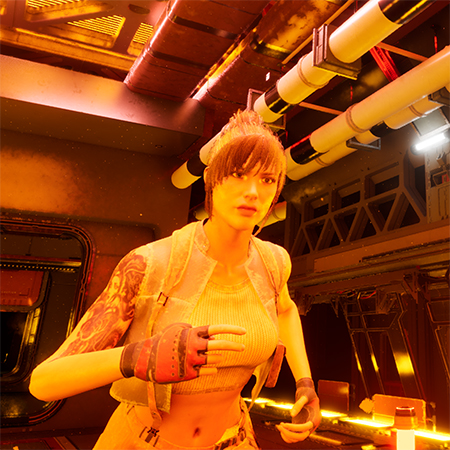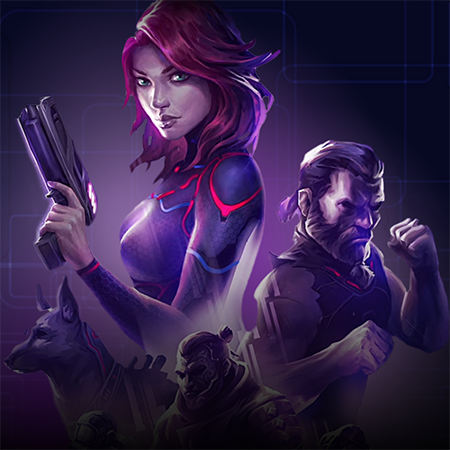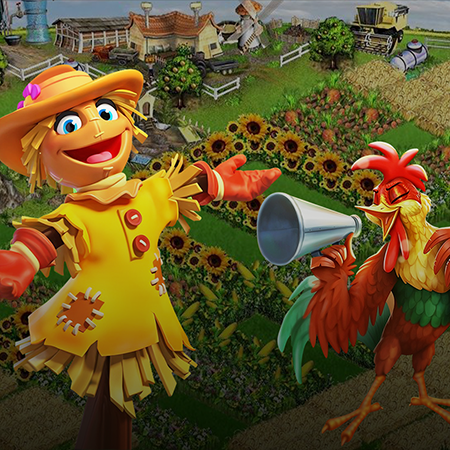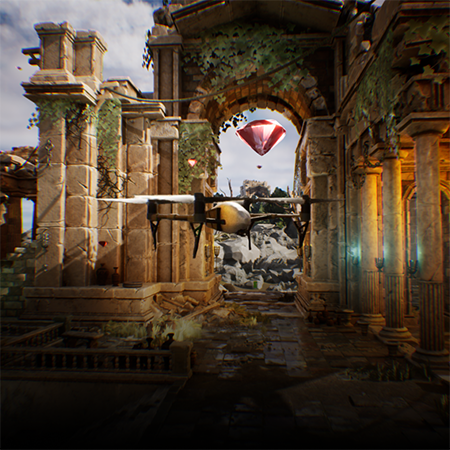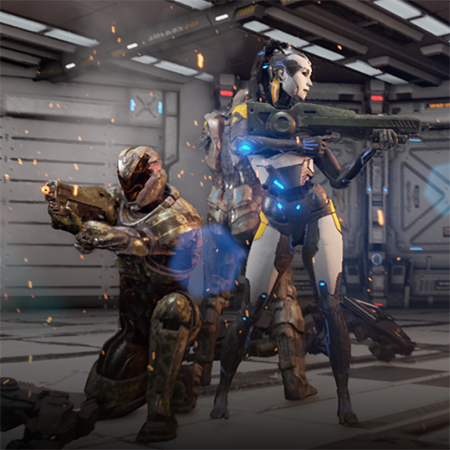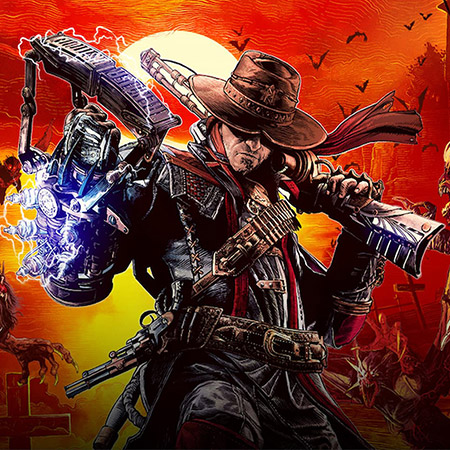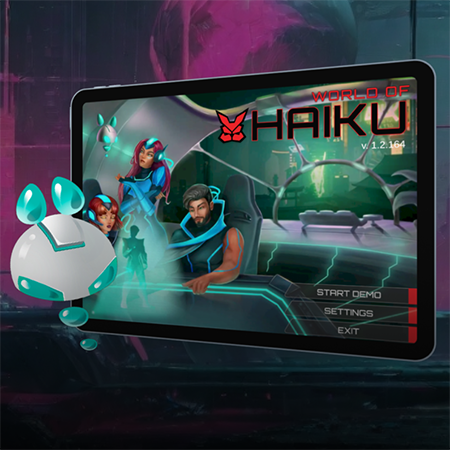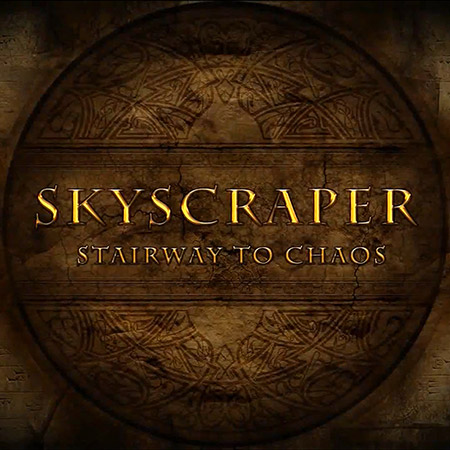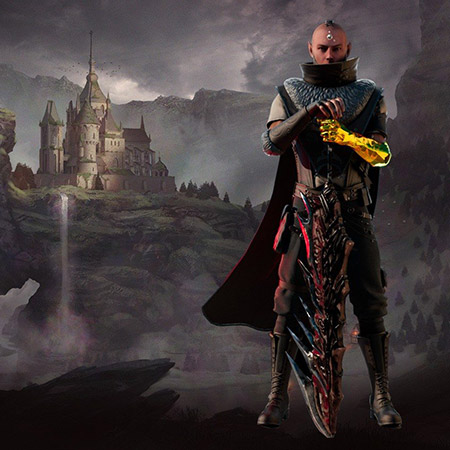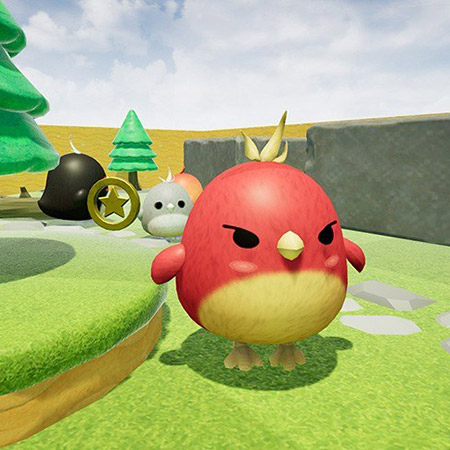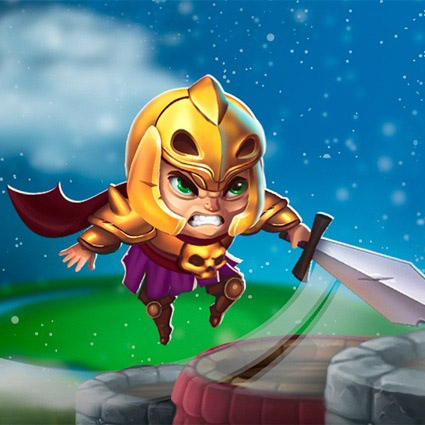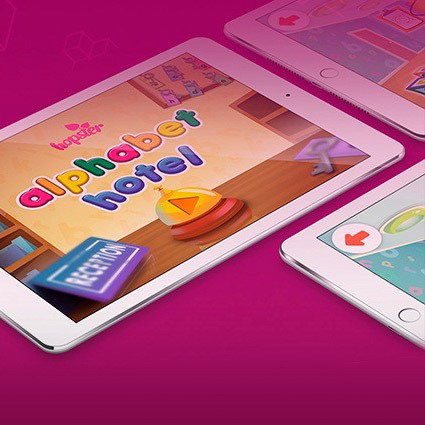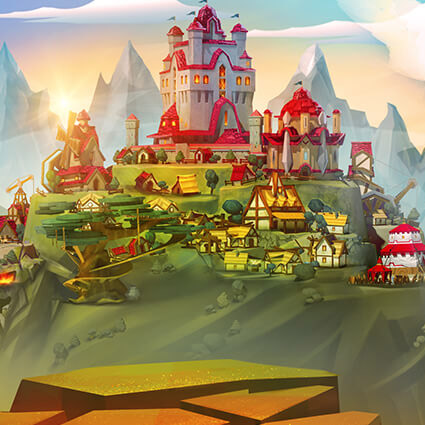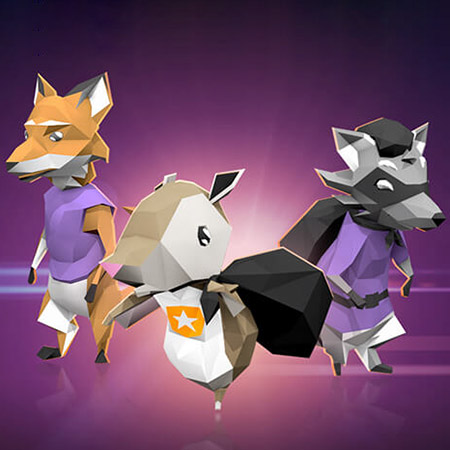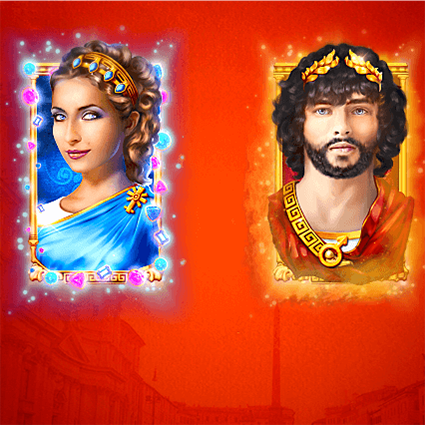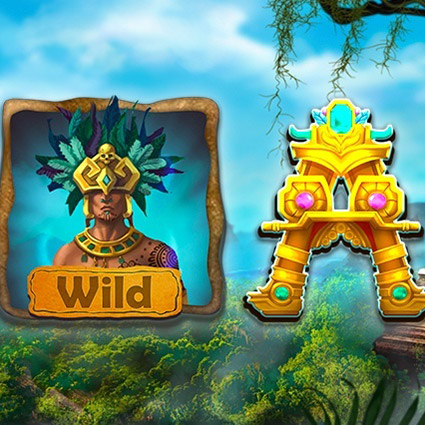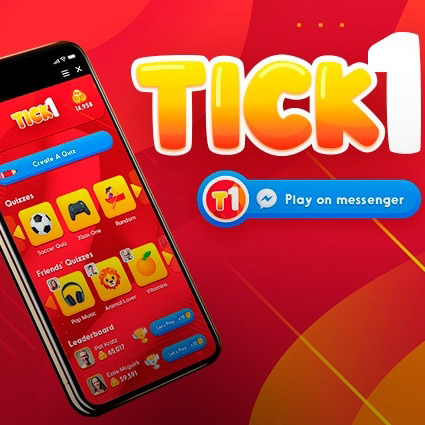
Dmitry Lunov,
PM at Game-Ace
This piece delves into the intricacies of NFT games, leveraging the rich experience and insights of Dmitry Lunov, an expert in the field and the Program Manager at Game-Ace. The article elucidates the mechanisms behind how NFT games function, simplifying complex concepts for a better understanding of this evolving technology.
Ever since NFTs made their groundbreaking entry into the gaming sector, they have brought about significant transformations. Despite initial skepticism and misunderstanding, many individuals and enterprises have begun to recognize the immense potential of play-to-earn games. For the average person, engaging in NFT games has become an efficient pathway into the crypto universe, providing a means to earn income by completing gaming quests. For corporations, they serve as a lucrative avenue for investment, offering additional revenue to bolster the company's operations.
NFT games are an integral part of the Game-Fi realm, an innovative blend of gaming and finance. At the core of these NFT games are essential elements such as the blockchain foundation, decentralization, and the utilization of non-fungible tokens as in-game assets.
These unique collectibles, the NFTs, can be realized in the form of gaming characters, props, and cards, among others. The value of such NFTs is ascertained based on their aesthetics, rarity, and specific game characteristics. Consequently, gaming NFTs can be acquired, earned, and traded.
However, it's crucial to have a comprehensive understanding of how NFT games work before delving into this burgeoning market. As such, a professional NFT game development company is pleased to provide answers to the most commonly asked questions about NFT games. So, are you ready to explore the world of NFT games? If so, let's cut to the chase and delve right in.
What Kinds of NFT Games Exist?
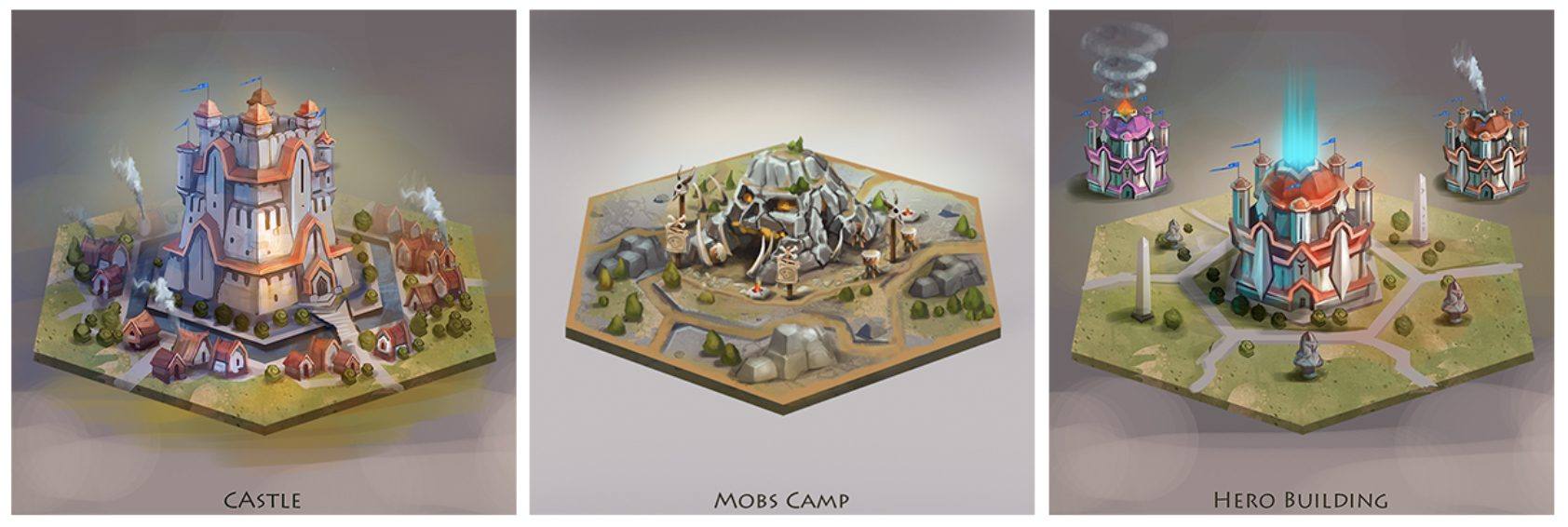
The scope of NFT games is continually evolving, showcasing many genres and mechanics intricately woven into the blockchain landscape. If you've been curious about how to create an NFT game, it is beneficial first to understand the potential range and depth this new breed of games offers. To facilitate this, let's delve into the most popular genres and mechanics in these blockchain-based games.
Primarily, it's essential to answer the question, "What are NFT games?" NFT games are a revolutionary class that utilize non-fungible tokens (NFTs) as in-game assets. These digital collectibles, unique to each player, can take the form of characters, items, or other game elements. They provide:
- players with true ownership of these assets;
- opening up opportunities for trade and sale;
- earning real-world income.
So, how do NFT games work? Fundamentally, NFT games leverage blockchain technology, decentralization being their key attribute. Every in-game asset, represented as an NFT, is stored on the blockchain, ensuring its uniqueness, ownership, and tradeability. The interoperability of the blockchain allows these assets to be transferred across different games or platforms, enhancing their value and appeal.
Additionally, to comprehend how to create an NFT game, it's worth exploring how NFT games operate in different genres. Do NFT games limit themselves to a specific genre? Absolutely not. The adaptability of NFTs allows them to be incorporated into a vast array of game types. From strategy and role-playing games to collectibles and virtual worlds, NFTs are redefining the gaming landscape.
Role-playing NFT games, for example, can provide players with characters or equipment as NFTs. These NFTs can level up, gain abilities, or accrue value over time. Strategy NFT games might let players own territories or resources as NFTs, which they can develop, trade, or wage wars over. In collectible NFT games, players could amass various unique NFT items, each with their own traits, rarity, and value. Armed with a better understanding of how NFT games function and their numerous possibilities, you are now better equipped to embark on the journey of creating an NFT game.
Remember, the essence of NFT games is not merely in the NFTs themselves but in how they empower players and transform the traditional gaming experience into something far more interactive, lucrative, and immersive. Therefore, NFT games are not just the future of gaming, they are the present, and understanding them is the first step towards harnessing their potential. Let this be your guide as you navigate the exciting world of NFT game creation.
NFT Games by Genres
Non-fungible tokens, popularly known as NFTs, have brought forth a new dimension in the gaming landscape. But how do NFT games work? What are NFT games, and what do they entail? Let's dissect this intriguing realm by exploring the different genres of NFT games and the unique features they offer.
1. NFT Action Games. This genre encompasses a wide range of sub-genres, all unified by the concept of battling enemies. Be it a platformer, a shooter, or a PvP (Player versus Player) duel, the crux of these games revolves around defeating opponents and progressing through various levels. Within the vast world of NFT action games, the in-game assets, weapons, and characters can often be represented as NFTs, providing an added layer of immersion and economic value.
2. NFT RPG Games. TRole-playing games (RPGs) are another prominent genre within the NFT gaming ecosystem. The essence of RPGs lies in the interaction between the player and the game world via an avatar — a game character with a rich backstory and individual motives. For instance, Nomadland, an NFT RPG, allows players to purchase land, construct farms, and engage in battles or monster-catching missions, all of which involve the use and trading of NFTs.
3. NFT adventure games. Adventure games have long been popular in traditional gaming, and in the NFT world, they take on a new level of interactivity. These games often take players on epic journeys through fantastical worlds, solving puzzles and overcoming challenges along the way. Players might be able to own unique artifacts or characters as NFTs, enhancing their gameplay and potentially leading to profitable trades.
4. NFT racing games. NFT racing games offer players the thrill of high-speed competition. These games reward the swiftest players with resources or NFTs, increasing the stakes of each race. The range of competitions extends beyond car racing, reminiscent of traditional titles like Need for Speed, to include other forms, such as horse racing, each of which can incorporate NFTs in innovative ways.
5. NFT collectible games. Based on the principle of collecting rare and unique items, NFT collectible games are an intuitive fit for the NFT model. In these games, players can own, trade, and sell their collected NFT items, making the act of collecting a potentially lucrative activity. These games can range from trading card games to virtual pet collections, all underpinned by the blockchain's transparency and security.
6. NFT sports games. Sports enthusiasts can dive into NFT games through various sports-oriented games, such as football or golf simulations. Some NFT sports games mimic actual sports events, enabling players to interact with digital athletes and earn rewards for victories. Other games, like Sorare, allow players to purchase NFTs representing real-world football players, with rewards based on the outcomes of actual matches.
7. NFT puzzle games. In this genre, players are challenged to solve a variety of puzzles, often under time constraints or other pressures. The incorporation of NFTs in such games can be as diverse as the games themselves. Perhaps rare puzzles can be owned as NFTs or unique solutions can be minted as tokens.
8. NFT strategy games. In this genre of NFT games, strategic decision-making is key. Successful strategies lead to victories and rewards in the form of valuable resources or NFTs. As players advance and their skills improve, they are better equipped to tackle increasingly challenging levels, creating a dynamic, progressive gaming experience.
9. NFT simulation games. Simulations offer players a chance to experience situations and activities that mirror real-life scenarios. In NFT simulation games, players can own unique pieces of their simulated world as NFTs, which might include properties, vehicles, or even entire businesses. This opens up unique gameplay mechanics and economic models, with players trading NFTs based on their value within the simulation.
10. NFT sandbox games. This genre provides an open-world environment where players can freely explore, build, and interact. When integrated with NFTs, items or creations made by players can be tokenized and owned truly. This adds a real-world value aspect to players' creativity and hard work, which can be traded, auctioned, or kept as a collectible.
Top NFT Games Mechanics
The phrase "NFT games" is becoming increasingly familiar in the burgeoning sphere of blockchain-based gaming. So, what exactly are NFT games, and how do NFT games work? NFT games are a new genre of digital entertainment that incorporate non-fungible tokens, or NFTs, as an integral part of the gameplay. These games provide a unique dimension of engagement, wherein players can own, trade, and even profit from their in-game assets.
Collecting resources. An essential aspect of many NFT games is the collection of resources. Through the completion of quests and in-game tasks, players receive unique resources. Utilizing these resources can enhance game progress and unlock new opportunities for earning gaming tokens as NFTs. These NFTs can take many forms, from valuable materials to powerful artifacts, each bringing its own dynamics to how NFT games work.
Breeding creatures. NFT games, such as Axie Infinity and CryptoKitties, offer unique game mechanics that allow players to breed new characters. Breeders carefully select specific species and invest in them to create a creature with a desired set of skills or abilities. Newborn creatures, represented as NFTs, can then be sold on various marketplaces. This introduces an entirely new dimension of gameplay and strategy, answering the question, "Do NFT games allow for character development?" with a resounding "Yes."
Farming. Certain NFT games allow purchasing a piece of digital land, which can be an NFT itself. Afterward, players can monetize this land. They can use resources earned or purchased in the game to produce new materials that can be sold or applied for various tasks. Thus, these games give a deeper insight into how NFT games work by simulating real-world economic models within the gaming environment.
Battle. Engaging in combat is another popular mechanic that attracts fans of battle games. Winning a fight against an enemy or group can result in players gaining in-game NFT assets like armor and weapons, as well as game tokens or resources for enhancing their characters' skills. These dynamic experiences contribute significantly to why NFT games are gaining popularity.
Crafting. Often, NFT games offer players the opportunity to find or earn resources that can be used for crafting new in-game assets. Even more intriguing is that some games allow players to mint their crafted items into NFTs, adding a new layer of value and ownership to their creations.
Trading. A common feature in many NFT games is the ability for players to trade their in-game assets, which are represented as NFTs. This dynamic marketplace offers players the opportunity to swap, buy, or sell unique items, resources, or characters. With this feature, NFT games don't just entertain but also have the potential for economic engagement. This trading mechanic is an integral part of how NFT games work, enriching the gaming experience while also offering tangible value.
Mining. Certain NFT games incorporate a mining mechanic, where players can extract valuable resources or tokens from the game environment. These resources could potentially be tokenized as NFTs, adding a layer of real-world value to this in-game activity. This mechanic enhances the economic aspect of NFT games, once again demonstrating how they work to blend gaming with tangible, blockchain-based assets.
Exploration. Many NFT games involve exploration, where players venture into new territories, discover hidden treasures, or unlock secret areas. Some of these games allow players to claim these discoveries as their own, minting them as unique NFTs. This fosters a sense of ownership and adventure, making the exploration all the more exciting.
Guilds/Teams. Cooperative gameplay is also prevalent in many NFT games. Players can form or join guilds or teams, working together towards common goals or participating in group battles. These communal activities can lead to shared rewards in the form of NFTs, fostering teamwork and strategic cooperation to pursue valuable assets.
Staking. Lastly, some NFT games also incorporate staking mechanisms, where players can 'stake' their tokens or NFTs to earn rewards over time. This mechanic allows players to earn passive income from their in-game assets, further underlining the economic potential of NFT games.
Ultimately, these additional mechanics underscore the diverse gameplay options and economic opportunities inherent in NFT games. As the understanding of how NFT games work grows, the potential for more intricate and engaging mechanics also expands. Each new mechanic not only enriches the gaming experience but also contributes to the unique blend of entertainment and economics that NFT games offer.
Looking for reliable NFT Game developers?
How Do NFT Games Work? The Most Important Aspects Explained
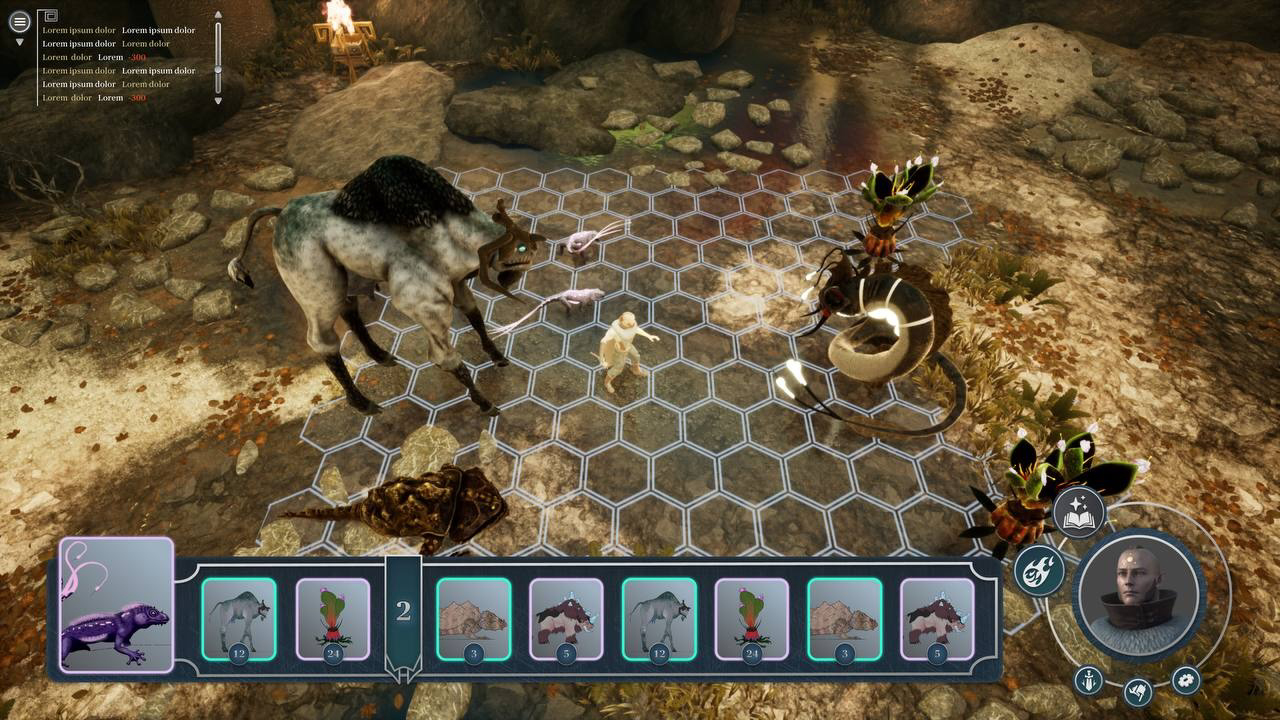
The gaming landscape is evolving with the advent of blockchain technology and non-fungible tokens. NFT games, a novel form of digital entertainment, offer a unique blend of play-to-earn mechanics and virtual ownership. However, the question is, how do NFT games work, and what distinguishes them from traditional gaming experiences?
Typically, an NFT gaming experience diverges from the traditional one as it involves a set-up process akin to starting a small business. The first step for any player interested in these games is to create an account to enter the game, typically via a web platform or mobile application. However, it's crucial to remember that in NFT games, one needs more than just an account. It necessitates a crypto wallet, as well as the installation of an NFT wallet compatible with the game.
This is where the question arises: what exactly are NFT games, and how do they operate on a different paradigm than traditional games? The answer lies in the intricate steps involved in getting started with these games and their many features. Here, we can delve into several fundamental aspects of NFT games:
- Crypto wallet set-up. Before venturing into NFT games, players must establish a crypto wallet. This digital wallet allows players to hold and manage various cryptocurrencies commonly used in NFT games.
- NFT wallet installation. Some NFT games require players to install a specific NFT wallet, which is used to manage the in-game non-fungible tokens. These tokens represent unique in-game assets, which players can own, trade, or sell.
- Account creation. Gamers typically need to create an account on the platform hosting the NFT game. This account serves as their unique identifier within the game.
- Understanding the game economy. NFT games often have intricate in-game economies with their own currencies and marketplaces. Players are welcome to familiarize themselves with these systems, as they are integral to how NFT games work.
- Gameplay mechanics. Every NFT game has different gameplay mechanics and goals. Players need to understand these to navigate the game and maximize their potential earnings effectively.
- Community interaction. Many NFT games have thriving communities. Engaging with other players can enhance the gaming experience and potentially open up new opportunities for collaboration or trade.
Obviously, the answer to "How do NFT games work?" is multifaceted and involves a deeper understanding of blockchain technology, cryptocurrency management, and the specific mechanics of each game. It's a more complex process than traditional gaming, but the potential rewards, both in terms of entertainment and financial gain, can make it an intriguing prospect for many players. Detailed guides on getting started can often be found on the game's website, making it easier for newcomers to navigate their initial foray into this exciting new gaming world.
How Do NFT Game Owners Make Money?
Navigating the innovative landscape of NFT games, it's vital to understand their distinct financial mechanisms. Unlike traditional game monetization models based on outright sales or in-game advertisements, NFT games function on a different economic structure — one rooted in the trading and purchasing in-game assets. Let's explore the details of this unique economic framework:
Initial in-game asset acquisition. The adventure in NFT games often begins with players making an initial investment to purchase specific in-game NFT assets. This step, absent in conventional games, is a crucial component of NFT games.
On-going asset purchases. The in-game asset ecosystem of NFT games doesn't end with the initial acquisition. Developers consistently introduce new assets to the in-game marketplace, creating continual purchasing opportunities and stimulating economic activity within the game.
Transaction fees. Blockchain-based games introduce a unique fee model wherein game owners levy charges on every transaction conducted on their platform, creating a consistent revenue stream.
Player-driven economy. Crypto games empower players to be more than mere participants; they are key contributors to the game's economic system. Players drive the game's economy by trading and negotiating NFT assets on the in-game marketplace.
Play-to-earn mechanism. A distinctive characteristic of NFT games is the play-to-earn model. Players can earn valuable in-game assets as they progress, providing a source of real-world value that can be traded or sold.
Asset ownership. Another distinguishing feature of NFT games is the notion of asset ownership. The NFTs players acquire their property, providing opportunities to trade, sell, or keep as they deem fit, thus opening avenues for profit and investment.
Diving deep into "how do NFT games work" from a financial perspective unveils a transformative shift in game monetization and player interaction. The intricate economic systems underpinning NFT games depart from the simple purchase or ad-based models of traditional games. They introduce an enriched level of interaction, investment, and potential profitability for players. As the dynamics of NFT games keep evolving, their financial mechanisms are bound to change and adapt, offering an ever-engaging player experience.
Is It Possible to Withdraw Gaming NFTs?
At the heart of play-to-earn NFT games, the key elements are the collection of unique NFTs and specific in-game tokens. Upon acquiring these GameFi collectibles, players can transfer them to their NFT wallet. In accordance with the unique attributes of the NFT game in question, players typically have two options to convert their NFT assets into real-world currency:
Converting cryptocurrency rewards into cash
This approach involves exchanging the in-game tokens for another form of cryptocurrency. Here, it's crucial to select an optimal trading pair, thereby facilitating a conversion into a type of cryptocurrency that can be further traded for traditional currencies like the Euro or U.S. Dollar.
Selling in-game NFTs
The first pathway under this option enables gamers to sell their in-game NFT assets directly to other players using the game's marketplace. Alternatively, gamers may choose to sell their gaming NFTs on a reliable platform for cryptocurrency exchanges, such as Binance or anything else you choose.
These options provide a clear answer to the question of how NFT games work in terms of monetization and real-world currency conversion. Are NFT games simply virtual adventures, or do NFT games present legitimate avenues for financial gain? Evidently, the design and mechanics of NFT games provide players with unique opportunities to engage in both play and profitable enterprise.
Essential: in order to successfully withdraw and cash out earned tokens or NFTs, it’s better to have at least basic knowledge of trading and how NFT games work.
Can a Player Lose Money Playing NFT Games?
Within the sphere of NFT gaming platform development, the primary objective for experts is to design a platform that generates value for both game owners and participants. As such, the entire system is typically calibrated for optimal financial gain. However, certain nuances can influence profitability.
Players of NFT games accumulate in-game NFTs and the game-specific tokens (like AXS in the case of Axie Infinity that are backed by a specific blockchain, often Ethereum. The value of these gaming NFTs and tokens is largely determined by the current exchange rate, which in turn is influenced by the demand for the particular cryptocurrency. Hence, players holding NFTs or tokens could incur losses if the price of the relevant blockchain cryptocurrency decreases, and conversely, they could reap profits if the price increases.
To answer the question 'How do NFT games work,' it's important to recognize that the operation of NFT games extends beyond gameplay and incorporates significant financial components. This financial aspect enables players to engage in a distinctive mix of gaming and investment. With the right understanding and strategic approach, players can leverage these financial elements to their benefit. Indeed, NFT games represent a unique blend of entertainment and finance, indicating their transformative influence on the gaming industry.
Can a Player Lose NFTs?
NFT games, akin to their traditional counterparts, involve risks that players need to be cognizant of. For instance, it's vital to understand the specifics of the blockchains that your game, wallet, and other platforms are compatible with. With this understanding, there's a chance of losing NFTs when transferring them to an incompatible platform.
In addition to gameplay mechanics, the question of "how do NFT games work" also encompasses essential safety considerations. As in any financial transaction, players must take necessary precautions to avoid scams or errors that could lead to a loss of NFTs when playing NFT games. This involves carefully selecting reputable platforms and acquainting yourself with their security guidelines for users.
Thus, while NFT games offer exciting new opportunities for players, they also present potential risks. To fully grasp how NFT games work, players need to be knowledgeable not only about game mechanics and strategy but also about the technology underpinning the games and the security precautions necessary for safe play.

The Nearest Future of NFT Games
Before jumping into the future of NFT games, let’s explore a bit of statistics to understand the market more deeply. Launched in 2015, the first-ever NFT game Etheria hasn’t reached the desired success due to a lack of understanding. Later, in the year 2017, NFT gaming rose up with the CryptoKitties game, when its first crypto-cat Genesis was sold for ETH246.9255 (~$117,712 atm). Thus, the GameFi market started developing rapidly, eventually hitting NFT game sales to $5.17bn in 2021.
Considering the backstory of blockchain gaming and many factors affecting it now, researchers from AbsoluteReports indicated that the global NFT gaming market would reach $2845.1m by 2028 with a CAGR of 20.4% during 2022-2028. Basically, these figures predict significant success for blockchain games and those investing in the field from the early stages. Thus, if you have ambitions to launch an outstanding NFT game, 2022-2024 is the right time to join the GameFi market.
Make Your NFT Game Profitable with Game-Ace
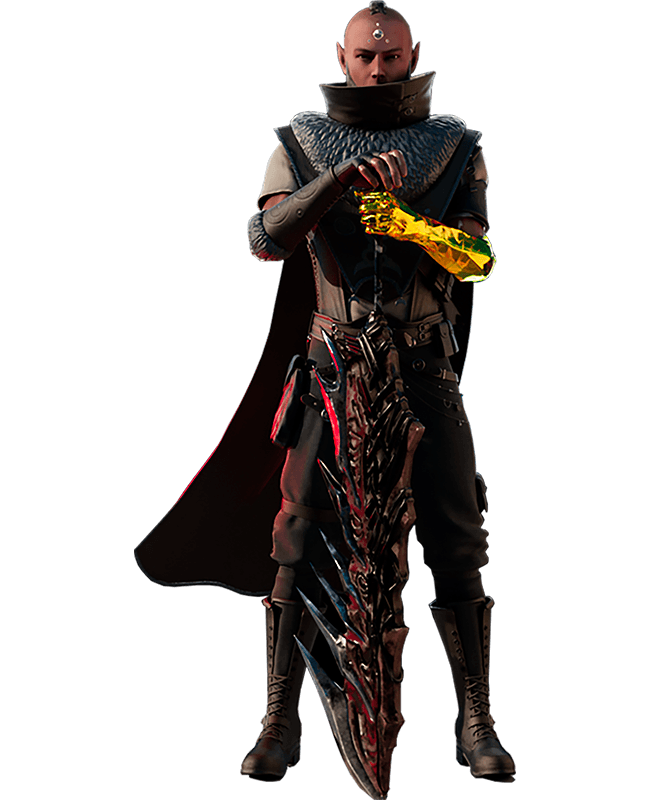
Exploring the rewarding world of NFT games presents great profit potential for both players and game creators alike. However, embarking on this path and becoming a successful participant in the NFT gaming market is no simple feat. As the GameFi market is predicted to grow, it brings more possibilities and intensifies the competitive landscape for entrepreneurs aiming to make their mark. In such a scenario, the importance of creating an NFT game that will secure a quick competitive advantage cannot be overstated.
Fortunately, navigating this challenging mission becomes significantly more manageable with the backing of professional expertise. To this end, we extend our invitation for you to join forces with Game-Ace — a company with an established track record of providing top-tier game development services to clients around the globe. With roots dating back to 2005, we have fine-tuned our skills in producing high-quality games for various platforms, including the successful deployment of notable NFT games. As we ponder "how do NFT games work," our seasoned experience stands ready to support your journey in NFT game development.
Contact us to get a detailed consultation and discuss the prospects of your future project.
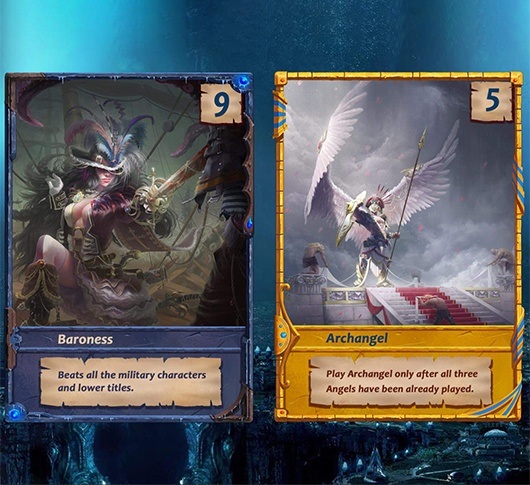 What Are NFT Games? — Meanings, Insights, Forecasts
What Are NFT Games? — Meanings, Insights, Forecasts 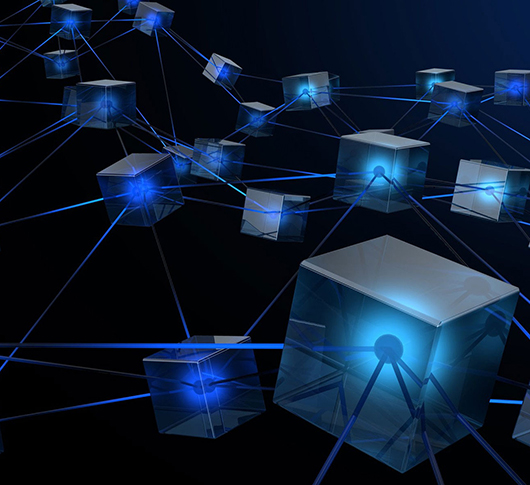 All About Web3 Gaming
All About Web3 Gaming 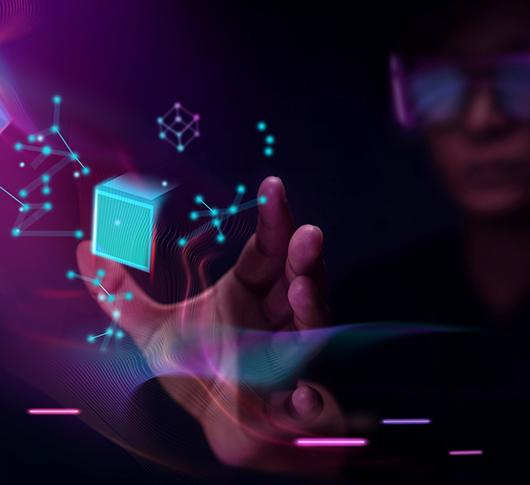 What Is a Blockchain Game? A Complete Overview
What Is a Blockchain Game? A Complete Overview 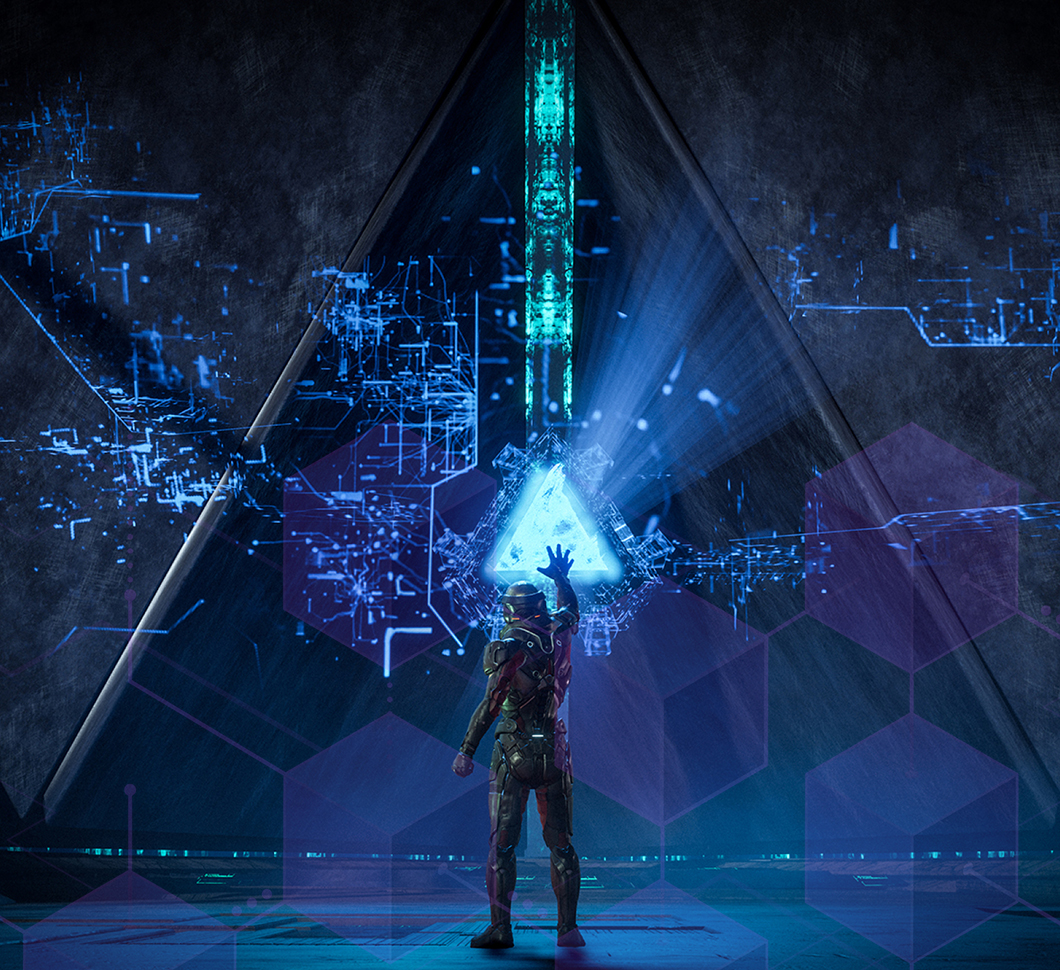 Top Blockchain Gaming Companies of 2023
Top Blockchain Gaming Companies of 2023  Top Web3 Gaming Companies That Will Help You Enter the Web3 Market
Top Web3 Gaming Companies That Will Help You Enter the Web3 Market 






